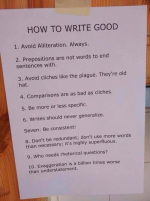MillieDynamite
Millie'sVastExpanse
- Joined
- Jun 5, 2021
- Posts
- 11,634
I don't see how, according to Merriam-Webster,
interrobang noun
: a punctuation mark ‽ designed for use especially at the end of an exclamatory rhetorical question
